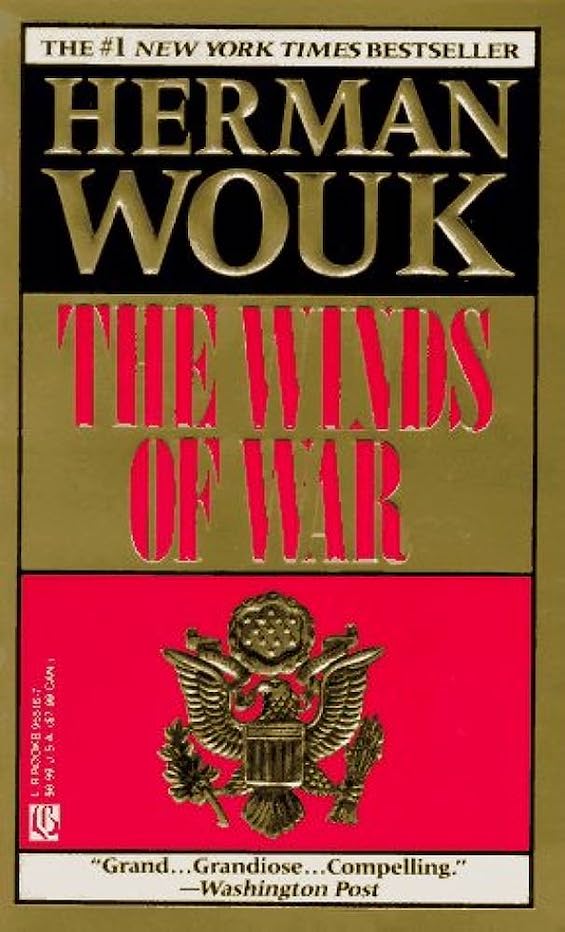
The 10 books highlighted here may not be the very best novels written about World War II. But they are the best ones I’ve read and reviewed since January 2010. I’ve given every one of them a rating of ★★★★★. There’s a second list below that includes some four dozen runners-up. All are novels I’ve awarded either ★★★★☆ or ★★★★★, eliminating a substantial number I gave lower ratings (or never finished reading at all).
This post was updated on May 23, 2024.
For the most part, I’ve left out novels set in the pre- and post-war periods, including only a couple that seem important in understanding how the war came about and how it affected the people who survived it.
You’ll notice several titles each by three authors who have written series of thrillers that are set at least in part during World War II: Alan Furst and Alex Gerlis, who write about espionage, and the late Philip Kerr, whose protagonist was an anti-Nazi detective in Hitler’s Germany. However, the action in many of the novels by Furst and Kerr takes place either before or after the war and do not appear on this list.
The 10 best novels about World War II are listed first. A second list that includes all five dozen books follows. That list is broken up into five sub-lists. Within the top list and each sub-list the titles are listed in alphabetical order by the authors’ last names. Each includes a link to my review.
The 10 best novels about World War II
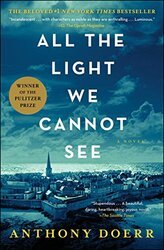
All the Light We Cannot See by Anthony Doerr (2014) 545 pages ★★★★★—This superb Pulitzer Prize-winner deserves the award it won
Literary awards can be a poor guide to enjoyable reading. Britain’s Man Booker Award-winners, for example, strike me as a mixed bag at best. Generally, though, a book that wins a Pulitzer and is a finalist for a National Book Award deserves more than a casual look. That’s certainly the case with All the Light We Cannot See, an historical novel long at or near the top of the national best-seller lists, winner of the 2015 Pulitzer Prize for Fiction.
In this stirring novel, two teenagers are caught up in the frenzy and the mortal dangers of World War II: a German boy who is extraordinarily clever with all things electronic, and a blind French girl who reads Jules Verne. Author Anthony Doerr explores the trajectory of their lives in parallel, moving them inexorably toward a fateful intersection in the book’s surprising climax. Read the review.
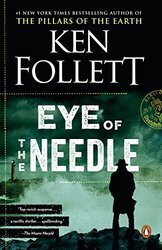
The Eye of the Needle by Ken Follett (1978) 364 pages ★★★★★—The 40th anniversary edition of Ken Follett’s classic WWII spy novel
British author Ken Follett is best known to a wide public these days for the Kingsbridge Trilogy, his mammoth multi-generational account of an English cathedral town. Together, the three books run to nearly 3,000 pages (and a fourth, a more recent prequel, takes the total to nearly 4,000). They’ve reportedly sold more than 80 million copies around the world. But that’s only half of the 160 million books Follett has sold since the publication of his first novel in 1974. And he has been topping the bestseller lists ever since the publication of his classic WWII spy novel, The Eye of the Needle, in 1978. The book sold 10 million copies, and it frequently appears on lists of the all-time best spy novels. So it’s no surprise that Penguin has brought out a 40th-anniversary edition of the novel. It fully deserves all the attention it gets.
In this novel, two of the most fascinating inventions of World War II figure prominently in Eye of the Needle. One is the XX Committee, or Twenty Committee, otherwise sometimes know as the Double-Cross Committee, which was entirely real. The other was not real at all: the fictional First United States Army Group under General George S. Patton, or FUSAG. Together, these two elements constituted what may well have been the most elaborate deception ever deployed in war. Read the review.
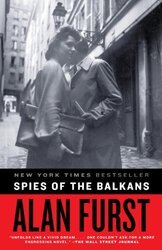
Spies of the Balkans (Night Soldiers #11) by Alan Furst (2010) 288 pages ★★★★★—Alan Furst’s superb novel, “Spies of the Balkans”
In the long, tense years of the Cold War, spy stories and films grounded in the rivalry between East and West appeared in such profusion that the genre degenerated into self-parody, eventually giving birth to bawdy satires. The public, it appeared, had long since ceased taking spy novels seriously.
Then, in 1988, came Alan Furst with Night Soldiers, cultivating fresh ground with its wickedly insightful and historically accurate portrait of European espionage in the time between the wars. With each successive novel, Furst broadened his view of the period, setting his tales in such far-flung cities as Warsaw, Prague, Berlin, Paris, Madrid, and Salonika, the Greek setting of his latest creation, Spies of the Balkans. In these complex and tightly written stories, Furst came across as not just a talented writer but an able historian as well.
Spies of the Balkans delves into the world of Costa Zannis, a senior police official in Salonika in 1940-41 as Hitler’s war machine lurches south toward Greece. Zannis, heir apparent to the police commissioner, becomes caught up in the characteristically Byzantine political affairs of the Balkans while juggling overlapping love affairs with two extraordinary women. An anti-German military coup in Yugoslavia, an “underground railway” for Jews escaping Nazi Germany, and the British Secret Service all figure prominently in the story. It’s a gripping tale. Read the review.
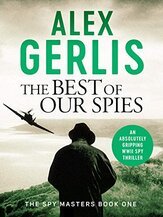
The Best of Our Spies (Spies #1) by Alex Gerlis (2012) 620 pages ★★★★★—An extraordinary World War II spy story grounded in historical fact
A number of excellent nonfiction books have been written about the exploits of British Intelligence in World War II, some of them by the practitioners themselves. Double Cross: The True Story of the D-Day Spies by Ben McIntyre stands out among recent examples. The title refers to what was variously called the XX Committee, the Twenty Committee, or the Double Cross Committee, a high-level body in British government charged with mounting a number of secret operations to deceive the Germans about the location of the Normandy Invasion. Their work, code-named Operation Fortitude and kept secret for decades, was spectacularly successful. It may have made the difference between the success or failure of the all-important invasion.
Naturally, an historical event so rich in detail and possibilities as the Allies’ successful deception that made the Normandy Landing possible has given rise to many spy novels as well as a passel of nonfiction books. The most satisfying of the novels I’ve read is The Best of Our Spies, by Alex Gerlis. Working on the foundation of historical fact, including some real-life characters as well as the locations where the action really took place, Gerlis has woven a deeply engrossing and suspenseful tale that does as good a job as any nonfiction book in conveying what Operation Fortitude was really like. Read the review.
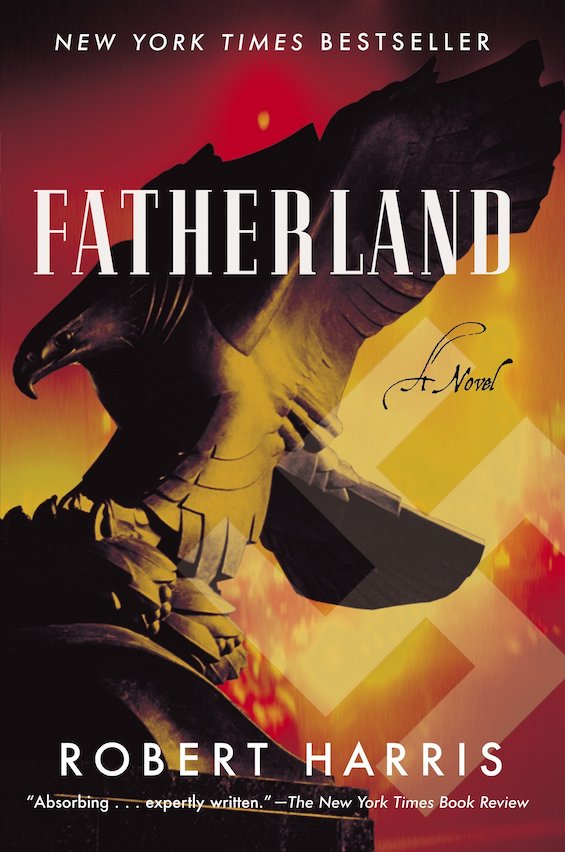
Fatherland by Robert Harris—A gripping alternate history novel about the world after a Nazi victory
April 1964. Adolf Hitler’s 75th birthday is a week off, and Germans everywhere in the Fatherland are preparing for the massive celebration. To cap the joy of the adoring masses, US President Joseph Kennedy will be arriving to negotiate detente with the Third Reich. Nazi officials hope that will take pressure off the Eastern Front, where German troops are still engaged in a desperate battle with Soviet partisans funded and equipped by the USA.
In Robert Harris’ alternate history novel, the Allies’ Normandy Invasion failed, driving Britain out of the war, and Nazi armies occupied all of European Russia. Hitler forced the US to cease fighting by exploding a V-2 rocket over New York City. The USSR is a rump state, with Joseph Stalin’s capital now in the Siberian city of Omsk. The Holocaust is unknown. Everyone is aware that millions of Jews were resettled in the East but no one wonders where they are. The Third Reich is triumphant in Europe. Together with the USA, which won its war with Japan by dropping nuclear weapons, the two superpowers—Germania and the USA—reign supreme over the planet. This is the backdrop for the blockbuster 1992 bestseller, Fatherland. Read the review.
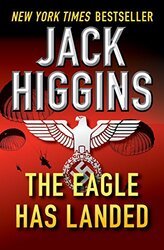
The Eagle Has Landed by Jack Higgins (1975) 372 pages ★★★★★—A classic espionage thriller that’s well worth rereading
Any list of the best espionage novels of all times must include Jack Higgins’ World War II caper story, The Eagle Has Landed. Published in 1975, this classic of the genre has sold more than 50 million copies. The novel introduces Liam Devlin, a fast-talking agent for the Irish Republican Army, who is featured in three of Higgins’ subsequent thrillers. Though nominally about espionage, as the story revolves around an imaginary plot by the Nazi military intelligence agency, the Abwehr, in 1943, the novel is more properly a thriller, action-filled virtually from the beginning to the end.
The principal characters in The Eagle Has Landed include two real-life leaders of the Third Reich, Admiral Wilhelm Canaris, head of the Abwehr, and Heinrich Himmler, leader of the SS and widely regarded as heir apparent to Adolf Hitler, who also figures in the plot as a minor character. It is Hitler who conceives the idea to land paratroopers in England to kidnap or kill Winston Churchill, inspired by the real-life rescue of Benito Mussolini by a German agent.
To carry out this outlandish scheme, Himmler turns to a senior member of Canaris’ staff, Colonel Max Radl, and forces him to carry out the scheme against his will. Radl recruits a highly decorated paratrooper, Lt. Colonel Kurt Steiner, and Liam Devlin to play the leading roles in the plan. They proceed on the basis of intelligence reported to them from England by Joanna Grey, a pro-Nazi Afrikaner woman who has inherited a large home on the Norfolk coast. Read the review.
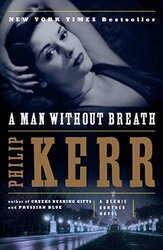
A Man Without Breath (Bernie Gunther #9) by Philip Kerr (2013) 477 pages ★★★★★—Mass murder in the Katyn Forest
In the spring of 1940, Josef Stalin’s secret police, the NKVD, systematically murdered some 22,000 Poles. Among the victims were half the members of the Polish officer corps, police officers, government representatives, royalty, and leading members of Poland’s civilian population. More than 4,000 of them were buried in the Katyn Forest, a wooded area near the city of Smolensk, located near the Belarus border west of Moscow. Philip Kerr’s illuminating novel is based on the international investigation first carried out there in 1943.
Though it might seem improbable, the Wehrmacht operated a War Crimes Bureau from 1939 to 1945. Ostensibly, the purpose of this organization was to uncover war crimes committed not just by the Allies but by Nazi Germany as well. Of course, it’s no surprise that records of the bureau’s inquiries into mass murder by the Wehrmacht (or, much more often, the SS) did not survive the war. Those that brought to light atrocities by the Allies did survive — but most were classified and hidden away by the US Government until 1975, when they were belatedly passed along to West German officials. Read the review.
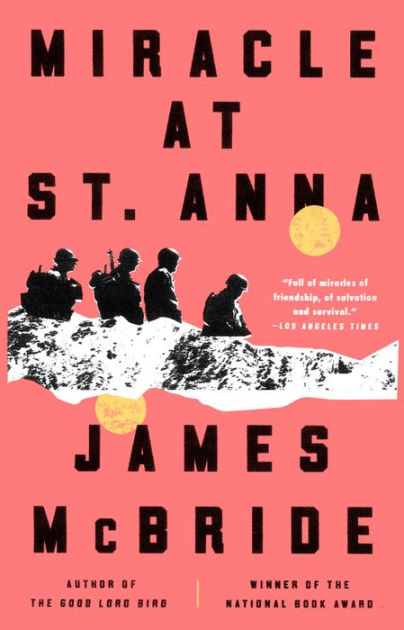
Miracle at St. Anna by James McBride (2001) 324 pages ★★★★★—Black soldiers on the front line in Tuscany in World War II
“This book is a work of fiction inspired by real events and real people.” So writes James McBride in an author’s note that precedes the text. He continues: “It draws upon the individual and collective experiences of black soldiers who served in the Serchio Valley and Apuane Alps of Italy during World War II.” They were among the storied “Buffalo Soldiers” of the US Army’s segregated 92nd Infantry Division. The division garnered thousands of honors, including two Medals of Honor, 208 Silver Stars, and 1,166 Bronze Stars, yet many of the white officers who commanded the unit circulated false reports of the troops’ poor performance. In Miracle at St. Anna, an engrossing account of the division in action in Italy late in 1944, James McBride brings that reality to light.
McBride’s story recounts the experiences of the four surviving soldiers of a squad in action in the Serchio Valley in December 1944. Privates Sam Train, Bishop Cummings, and Hector Negron, and Second Lieutenant Aubrey Stamps barely escape with their lives when the racist white captain directing artillery fire from division HQ against the Germans angrily refuses to support their company as they face murderous enemy fire. Instead, he targets the Germans facing a white detachment. The company is, in the language of the times, cut to pieces. Caught alone on the wrong side of the Serchio Valley, the four men hole up in the tiny village of St. Anna. Read the review.
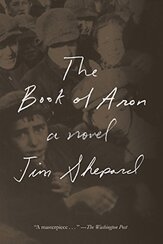
The Book of Aron by Jim Shephard (2015) 274 pages ★★★★★—A brilliant novel of the Warsaw Ghetto
The annihilation of the Warsaw Ghetto was one of the signature events of the Second World War. Its story has been told innumerable times, in print, on film, and in oral histories. But, since I don’t go out of my way to seek out books about the Holocaust, I hadn’t yet come across a book that tells the tale from the perspective of a child. The Book of Aron, a novel by Jim Shepard, does that job brilliantly. It is a superb contribution to the extensive literature about World War II.
This is not one of those predictable tales of the heroic but doomed Warsaw Ghetto uprising. The action takes place in the months leading up to the uprising. The story revolves around the life of a boy named Aron, the son of a poor Jewish couple from a Polish shtetl near the Lithuanian border. Aron is eight years old when the tale begins in 1936, but the book focuses on the tragic months in 1942 when he is thirteen. As the Nazis progressively shrink the borders of the Ghetto and starve its residents, Aron and his gang of twelve- and thirteen-year-olds turn to petty crime in an effort to survive. Read the review.
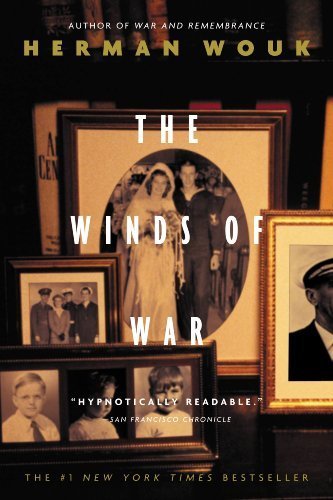
The Winds of War (World War II #1 of 2) by Herman Wouk (1971) 898 pages ★★★★★—Is this classic World War II novel the best ever?
Imagine trying to tell the story of World War II through the lives of a single family. After all, the war engaged more than 100 million people from 30 countries in a conflict that raged for years on three continents. Yet half a century ago a remarkable author named Herman Wouk set out to do exactly that for American readers. In two volumes totaling 2,300 pages, Wouk follows US Navy Captain Victor Henry, his wife, his two sons, the women they marry, his young daughter, and a handful of other characters as they are tossed about by “the winds of war.” The 900-page story by that name encompasses the years 1939 through 1941. And it’s followed by another 1,400 pages in a companion volume spanning the remaining years of the war. These classic World War II novels remain a compelling read fifty years after their publication. Read the review.
All five dozen best novels about World War II
Spy stories
The Traitor by V. S. Alexander—Dramatizing anti-Nazi resistance in Germany during World War II
The War Girls by V. S. Alexander—Life in wartime Warsaw before the Ghetto Uprising
Transcription by Kate Atkinson—Kate Atkinson’s latest is a beautifully written spy story
Mistress of the Ritz by Melanie Benjamin—Resistance, and collaboration, among the rich and famous of Paris
Three Hours in Paris by Cara Black—A suspenseful World War II espionage thriller set in Paris
A Single Spy by William Christie—A Soviet spy in Nazi Germany
1945 by Robert Conroy—What if Japan hadn’t surrendered?
The Lazarus Solution by Kjell Ola Dahl—A gripping tale of intrigue in wartime Stockholm
Novels of espionage by Ken Follett
- The Eye of the Needle—The 40th anniversary edition of Ken Follett’s classic WWII spy novel
- The Key to Rebecca—One of the best World War II spy stories
- Hornet Flight—The Danish Resistance and a secret Nazi base
Alan Furst’s Night Soldiers series
- Red Gold (Night Soldiers #5)—A brilliant novel of the French Resistance
- Blood of Victory (Night Soldiers #7)—Spies at work in WWII Istanbul and Rumania
- Spies of the Balkans (Night Soldiers #11)—Alan Furst’s superb novel, “Spies of the Balkans”
- A Hero of France (Night Soldiers #14)—Vive la Resistance!
- Under Occupation (Night Soldiers #15)—Alan Furst on the French Resistance
Alex Gerlis’s tales of spies in Europe
- The Best of Our Spies (Spies #1)—An extraordinary World War II spy story grounded in historical fact
- The Swiss Spy (Spies #2)—World War II spies in Switzerland
- Vienna Spies (Spies #3)—A stirring tale of spies in wartime Vienna
- The Berlin Spies (Spies #4)—The best spy novelist you’ve never read
- Prince of Spies (Richard Prince #1)—British spies and the Nazi V-2 rocket
Munich by Robert Harris—Robert Harris explains why Neville Chamberlain went to Munich
The Eagle Has Landed by Jack Higgins—A classic espionage thriller that’s well worth rereading
Luciano’s Luck by Jack Higgins—Fact and fiction about the Mafia and the WWII Allied invasion of Sicily
Tightrope by Simon Mawer—A well-written novel about World War II British espionage
The German Client (Bacci Pagano #6) by Bruno Morchio—An outstanding novel about the Italian Resistance in World War II
My Father’s House (Rome Escape Line Trilogy #1) by Joseph O’Connor—The WWII Vatican Escape Line for Jews and Allied POWs
The Consequences of Fear (Maisie Dobbs #16) by Jacqueline Winspear—Maisie Dobbs investigates a murder involving British intelligence
The war at home
Poppy Redfern and the Midnight Murders by Tessa Arlen—A charming cozy mystery set during the Blitz
Everyone Brave Is Forgiven by Chris Cleave—The human cost of World War II
All the Light We Cannot See by Anthony Doerr—This superb Pulitzer Prize-winner deserves the award it won
Manhattan Beach by Jennifer Egan—This bestselling historical novel is a winner
The Letter Writer by Dan Fesperman—Nazi saboteurs, the Mafia, and crooked cops
The Nightingale by Kristin Hannah—A deeply affecting novel of the French Resistance
Mercury Pictures Presents by Anthony Marra—European refugees add luster to wartime Hollywood
Warlight by Michael Ondaatje—A wartime mystery wrapped in fog
The Holocaust
The Paris Architect by Charles Belfoure—A reluctant hero in World War II
The Postcard by Anne Berest—One family’s story, from the pogroms to the ovens of Auschwitz
The German Girl by Armando Lucas Correa—A deeply affecting novel of the Holocaust
The Daughter’s Tale by Armando Lucas Correa—A heart-rending Holocaust story
Sarah’s Key by Tatiana de Rosnay—How French antisemitism fueled the Holocaust
The List by Martin Fletcher—A suspenseful tale of Holocaust survivors in post-war London
We Must Not Think of Ourselves by Lauren Grodstein—The drama before the Warsaw ghetto uprising
The Accomplice by Joseph Kanon—Hunting Nazis in Argentina
The Glass Room by Simon Mawer—A brilliant novel explores life in Nazi Europe
The Tattooist of Auschwitz by Heather Morris—Holocaust memories: A deeply moving love story set at Auschwitz
The Book of Aron by Jim Shephard—A brilliant novel of the Warsaw Ghetto
Beyond the Wire by James D. Shipman—Jews stage an uprising at Auschwitz
Mila 18 by Leon Uris—A classic novel of the Warsaw Ghetto Uprising
War and Remembrance (World War II #2 of 2) by Herman Wouk—Two World War II novels brilliantly convey the scope of the conflict
The Book Thief by Marcus Zusak—War and the Holocaust are the backdrop for this novel
Mystery and suspense
The Berlin Project by Gregory Benford—An alternate history of the Manhattan Project
The Secret Guests by Benjamin Black—Booker Award winner Benjamin Black returns to historical fiction
The Tuscan Child by Rhys Bowen—A touching tale of love and betrayal in World War II Italy
Fata Morgana by Steven R. Boyett and Ken Mitchroney—Clever plot twists in a time travel tale
1945 by Robert Conroy—What if Japan hadn’t surrendered?
Red Inferno: 1945 by Robert Conroy—What if the Cold War had turned hot in 1945?
The Madonnas of Leningrad by Debra Dean—A novel about memory evokes the siege of Leningrad
SS-GB by Len Deighton—In an alternate history, the Nazis occupy England
The Historians by Cecilia Ekbäck—A spellbinding WWII thriller set in neutral Sweden
The Reckoning by John Grisham—John Grisham digs deeply into history with this excellent WWII novel
The Nightingale by Kristin Hannah—A deeply affecting novel of the French Resistance
V2 by Robert Harris—A WWII thriller about Nazi “vengeance weapons”
Clark and Division (Japantown Mystery #1) by Naomi Hirahara—Murder strikes a WWII Japanese American family
The Good German by Joseph Kanon—The cost of total war was clear in Berlin after World War II
Field Gray (Bernie Gunther #7) by Philip Kerr—Bernie Gunther’s life in flashbacks
The Bernie Gunther series by Philip Kerr
- Prague Fatale (Bernie Gunther #8)—A hard-boiled detective in Nazi Germany
- A Man Without Breath (Bernie Gunther #9)—Mass murder in the Katyn Forest
- The Lady from Zagreb (Bernie Gunther #10)—Cynicism and romanticism in Nazi Germany
Beyond the Shadow of Night by Ray Kingfisher—Best friends become enemies in World War II
World Gone By (Coughlin #3) by Dennis Lehane—Suspenseful historical fiction that’s hard to put down
December 6 by Martin Cruz Smith—A standalone novel from the author of the Arkady Renko stories
The American Agent (Maisie Dobbs #15) by Jacqueline Winspear—Maisie Dobbs pursues a killer in Britain during the Blitz
A Sunlit Weapon (Maisie Dobbs #17) by Jacqueline Winspear—Maisie Dobbs meets Eleanor Roosevelt
In a class by itself
The Postmistress of Paris by Meg Waite Clayton—Rescuing anti-Nazi refugee artists from WWII France
Bomber by Len Deighton—An intensive look a single RAF Bomber Command mission in World War II
Miracle at St. Anna by James McBride—Black soldiers on the front line in Tuscany in World War II
The Diamond Eye by Kate Quinn—That famous Soviet female sniper in WWII
Task Force Baum by James D. Shipman—An ill-fated mission to rescue American POWs in WWII
The White Lady by Jacqueline Winspear—A terrific standalone historical thriller
The Winds of War (World War II #1 of 2) by Herman Wouk—Is this classic World War II novel the best ever?
War and Remembrance (World War II #2 of 2) by Herman Wouk—Two World War II novels brilliantly convey the global conflict
For related reading
This post is one of My 10 top reading recommendations.
Although I didn’t enjoy the novel or rate it highly, it does succeed in bringing an element of humor into the war: The Ventriloquists by E. R. Ramzipoor (A wild WW2 caper by the Belgian Resistance).
I’ve written a long article, “7 common misconceptions about World War II.” I’ve posted it on this site along with other articles about the war.
You might also enjoy my post, 10 top nonfiction books about World War II and 20 most enlightening historical novels.
Check out The 10 most consequential events of World War II and 15 good books about the Holocaust, including both fiction and nonfiction. Great war novels might also interest you.
And you can always find all the latest books I’ve read and reviewed, as well as my most popular posts, on the Home Page.

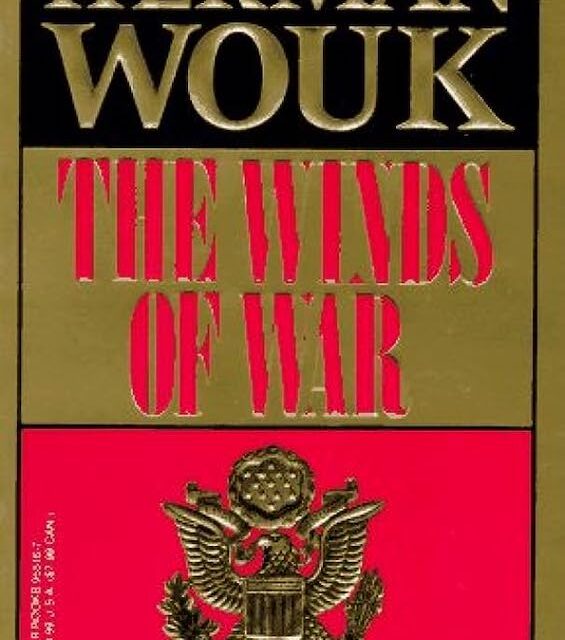
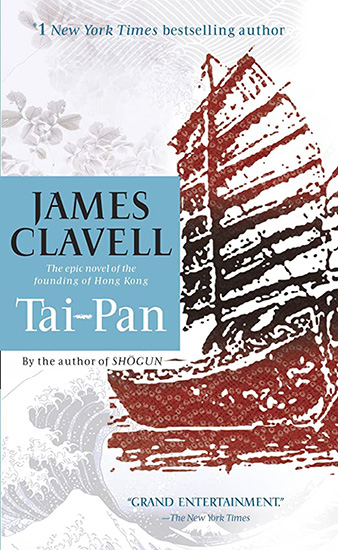
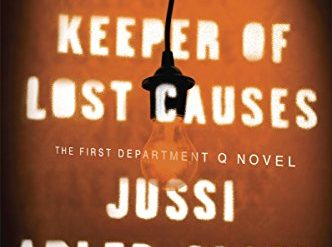
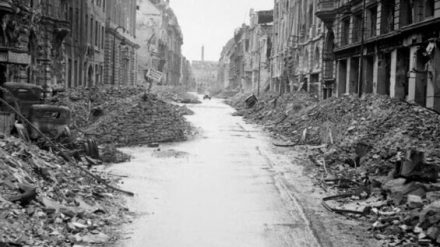
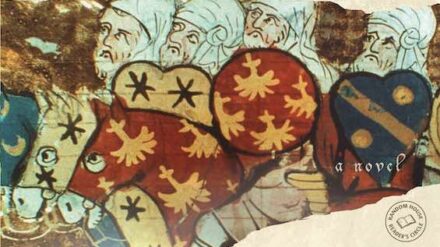





















Kinmel Revisited Published By https://www.penitpublicationsLLC USA I.S.B.N. 978-1-952894-36-7
Kinmel Revisited- Historical Fiction Set Around the true story of the Kinmel Army Camp Riot in 1919. Kinmel Camp was situated on the North Wales Coast adjacent to the village of Bodelwyddan which is hardly noticeable today, but back in 1919 it was on the front page of every tabloid newsapaper. The camp was set up for returning soldiers after we failed to supply the ships to take them home. Kinmel camp was said to be cold, damp and basically unfit
Hello, I’m trying to find a novel about WW2 that’s set in Italy in 1944/45. It’s based on a true story and includes an afterword in which the real daughter/niece of one of the protagonists requests help in locating a (British?) soldier called George Matthews.
I was shown a copy of the book years ago but sadly have no recollection of either the title or author, although I think it may have been by a British writer.
Any ideas on what it might be called, or how I might be able to find it (I’ve done a fairly extensive search already), would be very welcome.
Many thanks.
Katie
So sorry, Katie. There have been thousands of novels published about World War II, and I’ve read only a tiny fraction of them. I wish I could help. But thanks for writing, and good luck!
mal
Thank you anyway! Katie